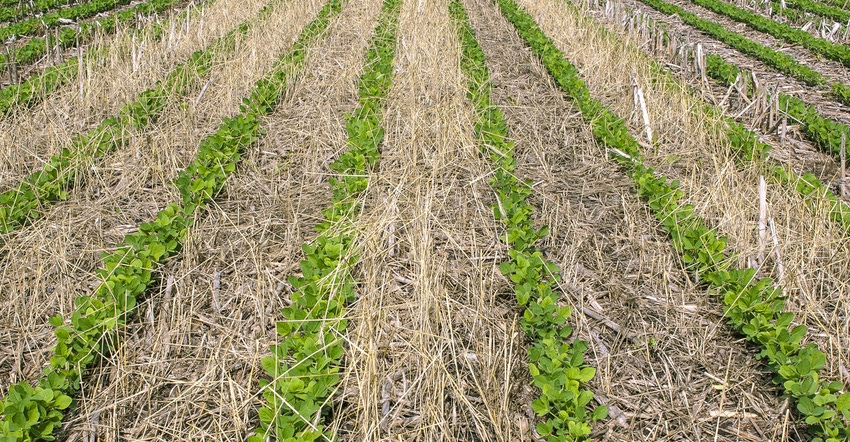July 5, 2021

Sponsored Content
These days, farmers are becoming more savvy about thinking outside the boundaries of traditional production to identify new revenue streams. A new opportunity that growers can tap into comes in the form of carbon, which offers growers the potential benefit of impacting their soil health, bottom line and the environment.
Programs like Bayer’s newly enhanced Carbon Program enables growers get paid for adopting climate-smart farming practices that have the potential to impact the environment, and to enhance the soil quality of their fields. Through the program, the company sees an opportunity to reward growers for adopting practices that help sequester carbon and position their fields to be productive for generations to come. Now in its second year, the program, which has hundreds of farmers enrolled, resonates with today’s forward-thinking growers.
“Our program is unique in that we pay growers for adopting practices on a per-acre basis,” says Lisa Streck, Carbon Program Lead for Bayer. “They typically calculate their ROI that way, so we structured the program to mirror how they measure value. It’s speaking their language.”
Growers enrolling in the program can earn up to $9 per acre for implementing climate-smart production practices, which include strip- and no-till and cover crops.
Based on feedback from farmers – including those who advise the company through its Carbon Advisory Panel – Bayer recently made two significant enhancements to the initial program, which was piloted in 2020. The 2021 Carbon Program adds the ability of farmers who have previously adopted smart climate practices on or after January 1, 2012 to enroll these fields in the program and begin reaping the rewards.
In addition, the 2021 program expands farmer eligibility to 17 states: IN, IL, IA, KS, WI, ND, SD, NE, MN, MO, MI, OH, AR, MS, LA, MD and DE.
Streck says Bayer will continue to look for ways to expand and enhance the program. So far, grower response has been positive, with many citing the certainty of payment and the science-based approach behind the program. Many say they also like the simplicity of the program, which offers easy enrollment and the ability to choose fields and farming practices, and Bayer then takes care of practice validation and soil sampling for farmers.
“It’s very cut-and-dried,” says Jack McCormick, a fourth-generation Illinois farmer. “They told me up front when I’d get paid, how much I’d get paid, how it would be measured. I know what to expect up front.”
That, says Streck, is the beauty of the program: “Farmers choose the field, which climate-smart farming practice(s) they’ll adopt, and then we take it from there and work through all the verification and validation steps.” It’s simplifying sustainable farming, something growers say they appreciate, and it comes with agronomical support from Bayer experts.
“For anyone considering cover crop or no-till practices, this program is easy to follow, and you know where you stand on Day One,” says McCormick. “Bayer makes it easy to communicate with them, and I receive tips, like how to maximize the output, management with cover crops, good cover crop practices. They’re interested in me succeeding with this and continuing forward.”
Bayer says it is not in the space for just the short term; theirs is a long-term commitment to helping growers participate in carbon markets when established. “Carbon concentration in the atmosphere is one of the main challenges the world is facing, and ag can be part of the solution,” says Streck. “Farmers can and should be rewarded for making smart choices toward that solution.”
Not only is the additional revenue stream important, but it also improves soil health, something critical to farmers as they leave their operations to future generations. “Farmers are shrewd businesspeople and are always looking for opportunities to connect to additional revenue streams,” Streck says. “In this high commodity marketplace, an opportunity for healthier soils is an opportunity for better yields.”
Farmer-driven and farmer-focused for optimum impact at both the climate and ground levels – it’s a strategy that resonates with growers.
For complete details on the Bayer Carbon Program, visit BayerCarbon.com.
You May Also Like




